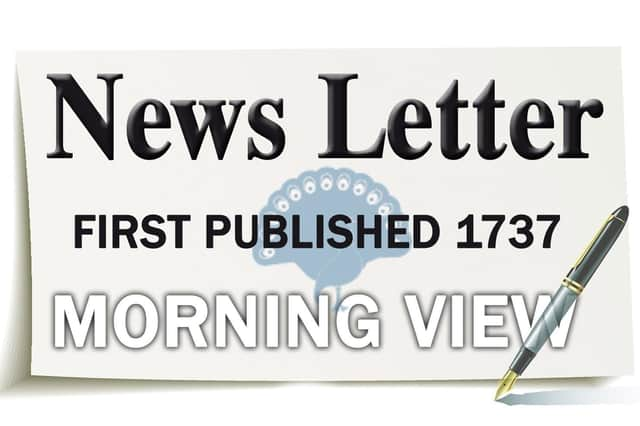Editorial: The head of the civil service in Northern Ireland should not be seen to takes sides in a strike


It is completely inappropriate for the head of the Northern Ireland civil service to stand on a picket line in defence of striking workers.
Is Jayne Brady unaware of this? If so, why did she let the impression of such support to stand after meeting strikers at Stormont yesterday? And why was Jill Minne, head of human resources, meeting such workers too?
Advertisement
Hide AdAdvertisement
Hide AdIt might be they were only politely meeting these employees on the picket line. But the union leader Carmel Gates said: “I’m taking that as a very clear message – which ties in with the message that [Ms Brady] has given us previously when she and Neil Gibson [another senior civil servant] issued regret at how poor the pay award is – that they are supportive.”
In case the Nipsa general secretary was wrong in her interpretation of the presence of such senior officials on the picket line, the News Letter asked the NI Civil Service if Ms Brady denied that attendance was an implicit endorsement of the strike and/or pay demands from the unions.
A spokesperson for the civil service declined to counter any such interpretation of their presence, and said: “The head of the civil service is on record for the need to address public sector pay and her engagement today is consistent with that stance.”
It is inappropriate for Ms Brady to show support, as it is for any head of an organisation to side with the employees over the management in an industrial dispute. It is also inappropriate for a civil servant to take sides in a political dispute such as this, when there are reasonable arguments against public sector demands.
Advertisement
Hide AdAdvertisement
Hide AdMs Brady recently wrote an inappropriate letter to Chris Heaton-Harris demanding he “address unacceptable public sector pay disparity". However, the government is in large part ultimately responsible for this state of affairs, by not taking back control of governing NI, thus leaving civil servants in an impossible position.